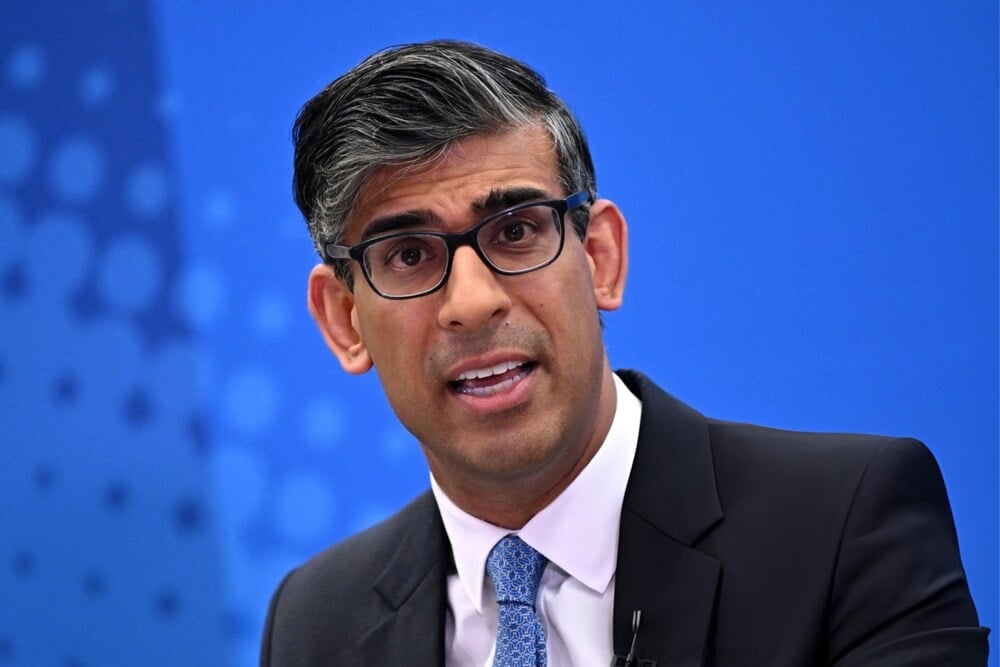The Labour party has secured a landslide victory in a UK general election that saw a nationwide rejection of its Conservative rival after 14 years in power.
Outgoing prime minister, Rishi Sunak, conceded defeat less than seven hours after Thursday’s vote ended, as early results showed his party heading for the biggest losses in its history.
His incoming successor, Sir Keir Starmer, will preside over a 410-plus majority in the 650-seat House of Commons, with the Conservatives reduced to barely over 120.
In a contest marked by generally low turnouts, Labour secured its massive win on the back of winning just over a third of the popular vote, an indication that the result reflected disillusionment with Conservative rule rather than widespread faith in Starmer’s campaign promise of change.
Some of its best results came in Scotland, where Labour reclaimed much of a former heartland from the Scottish National Party.
Labour is not offering any quick fixes to the challenges
While Labour will have more than enough MPs to press ahead with its legislative programme, it could soon lose favour with a still somewhat skeptical public if it fails to produce an economic turn-around to mend Broken Britain.
In a dawn address to supporters, a smiling Starmer declared: “We did it! Change begins now”, as he pledged a mission of national renewal to rebuild the country.
Labour is counting on a boost in economic growth to deliver on its change agenda
Having ruled out significant tax rises and unsecured borrowing, Labour is counting on a boost in economic growth to deliver on its change agenda.
A decade and more of austerity, launched by the incoming Conservative-led government in 2010, has hollowed out public services such as the National Health Service, slashed municipal budgets and contributed to crumbling infrastructure from prisons to schools.
Labour is not offering any quick fixes to these challenges. However, the prospects, as Starmer enters Downing Street, are not entirely bleak.
Incentive to investors
A period of political stability could provide an incentive to investors bruised by the uncertainties brought on by the prolonged process of the UK’s departure from the European Union. Labour will seek a more positive relationship with the country’s former EU partners, while ruling out rejoining the single market.
Starmer’s party also intends to loosen a tight planning regime that acts as a drag on solving a chronic housing shortage. It might go further by obliging developers to build on unused land.
One other potential source of growth would be to take measures to encourage major pension funds to unleash some of the billions currently held in ultra-safe holdings such as government bonds and make them available to finance infrastructure spending.
Labour’s detailed blueprint for tackling the economic challenges may not be spelled out until a budget in October
Under the outgoing Conservative government, British business leaders complained to the chancellor, Jeremy Hunt, that pension funds were starving the UK of capital and appealed for a reverse in their domestic equity investments.
Labour dedicated part of its campaign to wooing the business sector, aware that its growth agenda would rely heavily private sector funds to finance for new infrastructure.
Although public services and the cost of living top the public’s current concerns, Labour’s detailed blueprint for tackling the economic challenges may not be spelled out until a budget in October. The outlines of its wider legislative agenda will be revealed in the King’s Speech at the opening of the new parliament on July 17.
Post-election autopsy
The crowded Labour benches will be ranged across from the depleted Conservative ranks, whose survivors will still be engaged in a post-election autopsy.
The Conservatives dropped to an unprecedented one quarter of the vote share, as millions backed candidates most likely to undermine the increasingly disorderly party.
Former prime minister Liz Truss, who almost sank the economy in her 44 days in office, saw her 26,000 majority overturned by her Labour challenger. She was among a clutch of serving and former ministers to lose their seats.
 The Conservatives dropped to an unprecedented one quarter of the vote share, as millions backed candidates most likely to undermine the increasingly disorderly party- Rishi Sunak
The Conservatives dropped to an unprecedented one quarter of the vote share, as millions backed candidates most likely to undermine the increasingly disorderly party- Rishi Sunak
The insurgent right-wing Reform Party burrowed into the traditional Conservative vote, pushing Sunak’s party into third place in some districts. It took just four seats of its own, including that of its leader and former Brexit cheerleader Nigel Farage.
Elsewhere, disillusioned Conservatives opted for the centrist Liberal Democrats who secured 71 seats, its best result since 1923.
Starmer’s first week in office will focus on ministerial appointments and also on foreign affairs, as he heads to Washington for a NATO summit at which he will reaffirm the UK’s support for Ukraine.
He remains something of an unknown quantity, even among those who delivered him landslide.
He succeeded in turning around a failing Labour party in less than five years. He may need to employ some of the same ruthlessness he employed in that enterprise as he meets inevitable resistance from interest groups, including on his own left, as Labour policy evolves.
As he will have learned from the Conservatives, a divided party eventually loses.